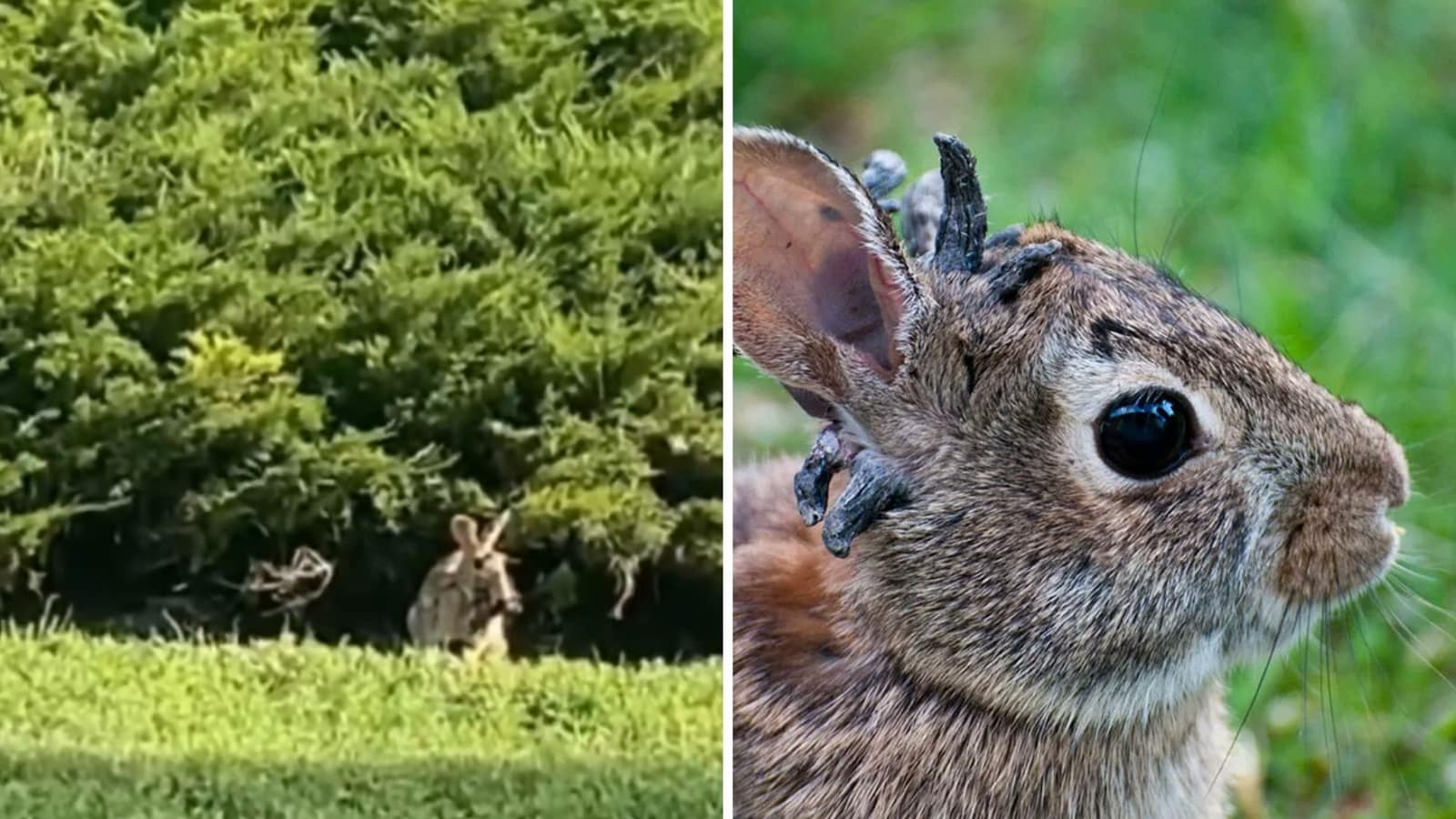Updated on: Aug 19, 2025 07:00 am IST
Rabbits infected with the Shope papilloma virus have growth on their heads and faces resembling “horns and tentacles.”
A man who thought pictures of rabbits with grotesque and hornlike growths flooding the internet were fake was shocked when he spotted one in Colorado. A video shows the man talking about the creature while recording it.
“This man was in pure disbelief when he spotted one of the infected papillomavirus rabbits with horns called ‘Frankenstein Bunnies’ that were originally reported in Colorado in Downtown Sioux Falls in South Dakota,” an X user wrote while sharing the video.
In the video, the man is seen recording a rabbit sitting near a bush on the opposite side of a road. Slowly and carefully, the man approaches the animal to show tentacle-shaped growths protruding from their head and face. Throughout the video, the man keeps saying how the scene shocked him.
(Viewer discretion advised: The video contains abusive language.)
Over the last few weeks, sightings of rabbits with bizarre growths have been reported in Colorado, Minnesota, and Nebraska. These uncommon facial features of the furry creatures left many uncomfortable, promoting nicknames like “Zombie Bunnies” or “Frankenstein Bunnies”.
Why are some rabbits growing strange ‘horns and tentacles’ on their face?
According to wildlife experts, this unsettling condition occurs when a rabbit gets infected with the Shope papilloma virus, named after Dr. Richard E. Shope, a professor at Rockefeller University who discovered this disease in 1930.
Are ‘Zombie Rabbits’ a threat to humans?
According to a Forbes report, despite having alarming appearances, these animals pose no threat to humans. Though this virus cannot harm humans or their pet cats or dogs, wildlife and health officials advise people not to touch the infected rabbits.
Also Read: Nightmarish video of tarantula infected by zombie fungus goes viral: ‘Burn it with fire’
A spokesperson for Colorado Parks and Wildlife, Kara Van Hoose, told the Associated Press (AP) that the growths initially resemble warts but turn to look more like horns when they grow.
Usually, the growth doesn’t harm the rabbits. However, growths on the eyes or mouth can disrupt clear vision and interfere with eating.

